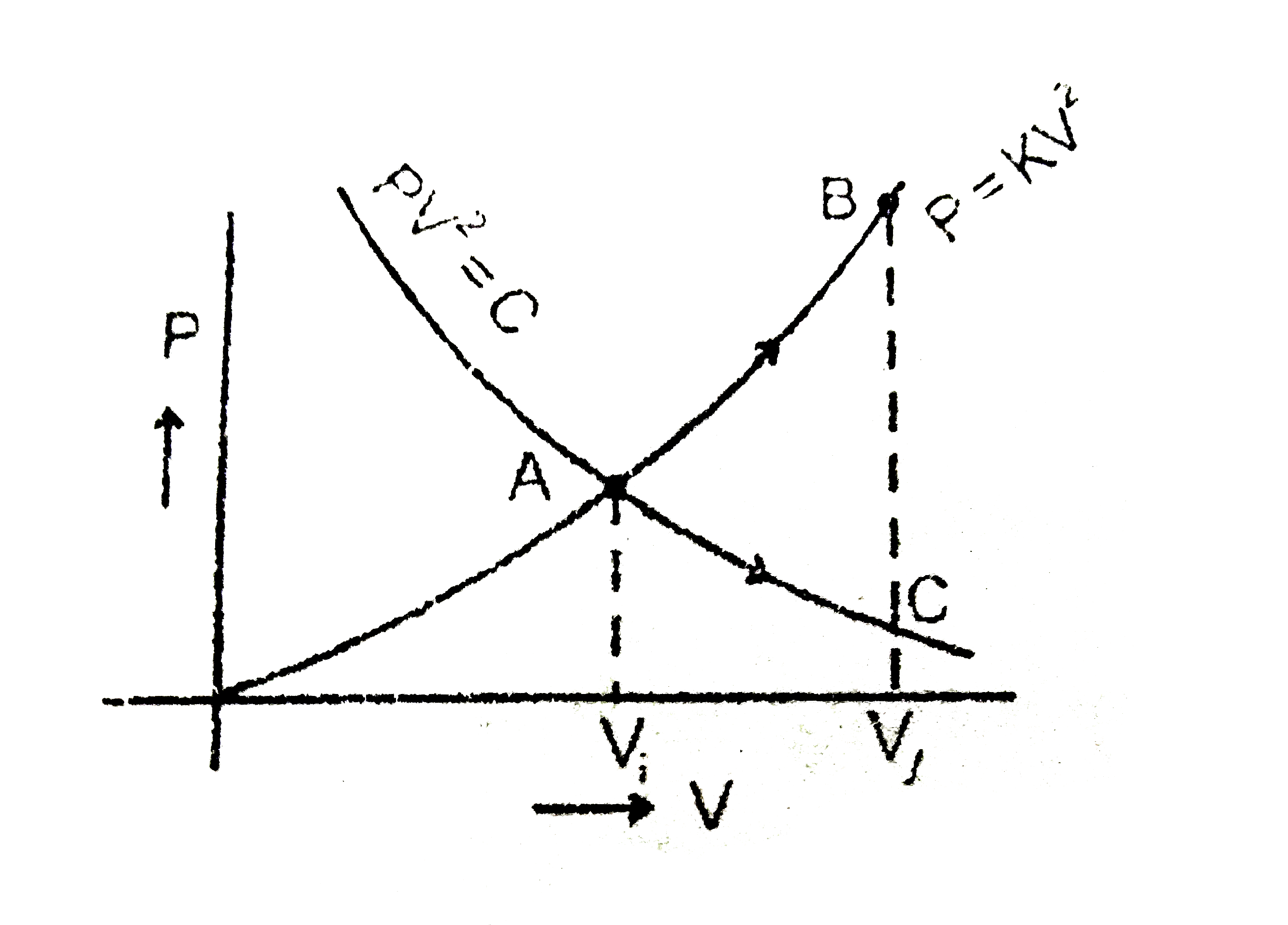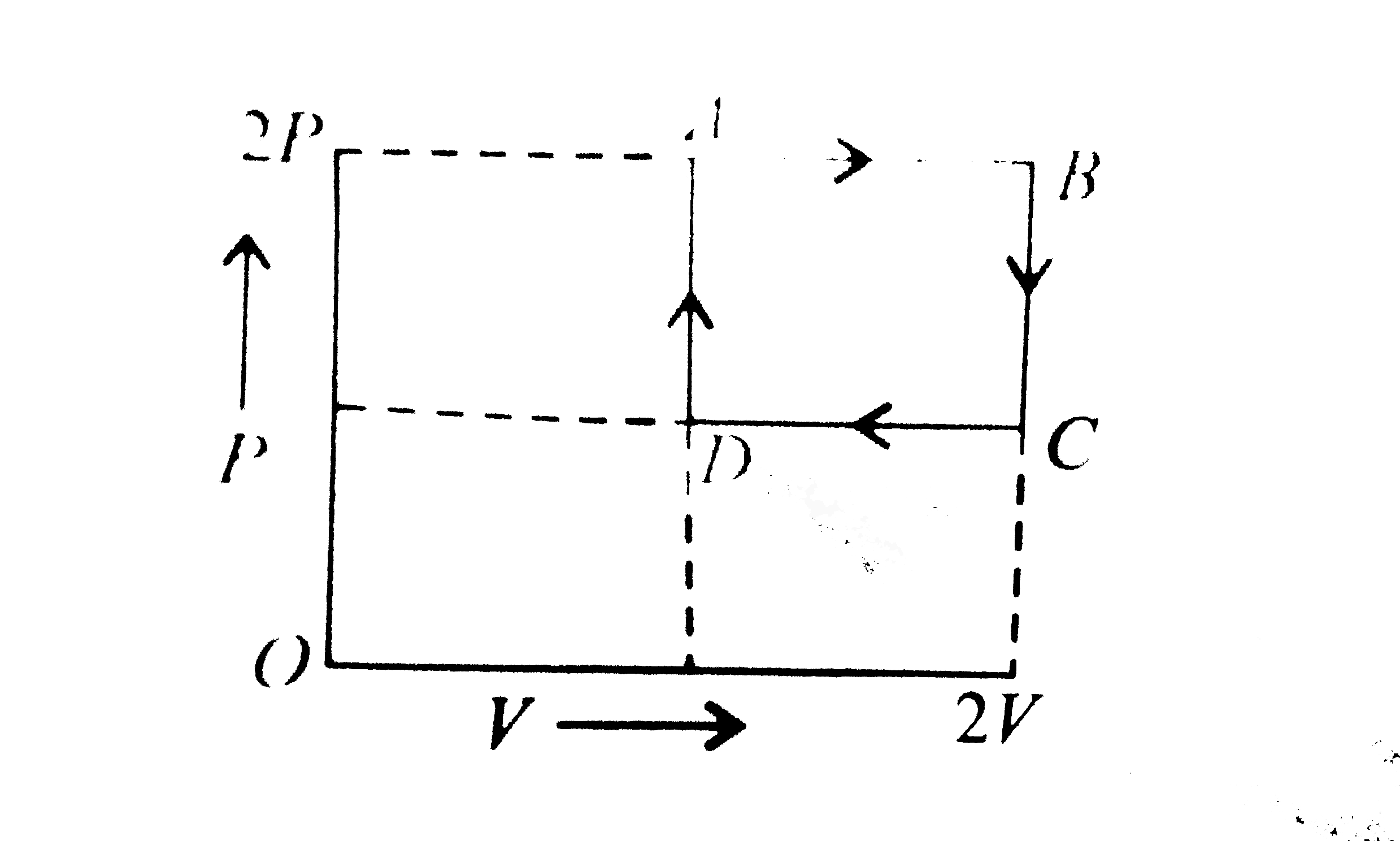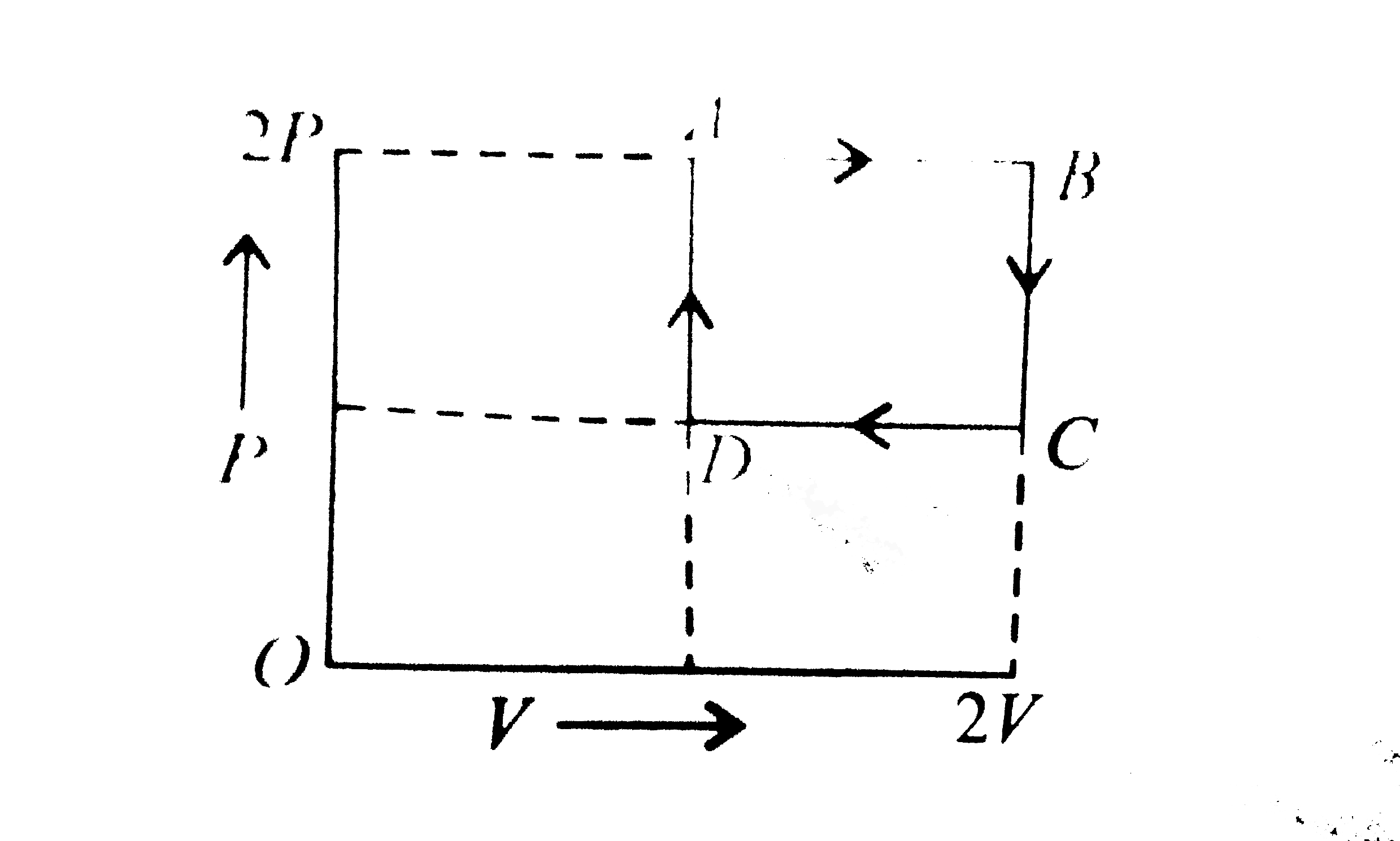An ideal gas can be expended from an initial state to a certain volume through two different processes
(i) pV2= constant and (ii) p=KV2 where K is a positive constant. Then
Final temperature in (i) will be greater then in (ii)
Final temperature in (ii) will be greater then in (i)
Total heat given to the gas in (i) case is greater than in (ii)
Total heat given to the gas in (ii) case is greater than in (i)
The correct Answer is:B, D
From equation PV=nRT
Pc<PB,Vc=VB and TB>Tc
WAB>WAC(TB−TA)>Tc−TA
So By 1st law
Q=ΔU+W
Q=fi2nRΔT+W QAB>QAC

Topper's Solved these Questions
- THERMODYNAMICSBook:RESONANCE ENGLISHChapter:THERMODYNAMICSExercise:Exercise-2 part -IV : Comprehension
Explore 11 Videos
- THERMODYNAMICSBook:RESONANCE ENGLISHChapter:THERMODYNAMICSExercise:Exercise-3 Part-1: JEE (ADVANCED)
Explore 11 Videos
- THERMODYNAMICSBook:RESONANCE ENGLISHChapter:THERMODYNAMICSExercise:Exercise-2 II: Single and double value integer type
Explore 16 Videos
- TEST SERIESBook:RESONANCE ENGLISHChapter:TEST SERIESExercise:CHEMISTRY
Explore 50 Videos
Similar Questions
An ideal gas can be expanded form an initial state to a certain volume through two different processes PV2= constant and (ii) P=KV2 where K is a positive constant. Then
View SolutionAn ideal gas can be expanded form an initial state to a certain volume through two different processes PV2= constant and (ii) P=KV2 where K is a positive constant. Then
View SolutionAn ideal gas can be taken form initial state 1 to final state 2 by two different process. Let ΔQ and W represent the heat given and work done by the system. Then which quantities is/are same in both process (where ΔU= internal energy of gas)
View SolutionAn ideal gas expands in such a way that PV2=constant throughout the process.
View SolutionTemperature of an ideal gas is 300 K . The final temperature of the gas when its volume changes from V to 2V in the process p=αV (here α is a positive constant) is
View Solution0.5 litre of an ideal gas at a pressure of 20 atm expands to a final volume of 0.5m3. The process obeys the equation PV = a constant, (i) Find the value of this constant (ii) What is the final pressure ? And (iii) Find, the work done by the gas,
View SolutionIn the process pV2= constant, if temperature of gas is increased, then
View SolutionThe state of a mole of an ideal gas changed from state A at pressure 2P and volume V follows four different processes and finally returns to initial state A reversibly as shown below in the graph. By interpreting the graph, answer the following questions.

Which is the kind of process followed from state A to state, B?
View SolutionThe state of a mole of an ideal gas changed from state A at pressure 2P and volume V follows four different processes and finally returns to initial state A reversibly as shown below in the graph. By interpreting the graph, answer the following questions.

Which is the kind of process followed from state A to state, B?
View SolutionThe state of a mole of an ideal gas changed from state A at pressure 2P and volume V follows four different processes and finally returns to initial state A reversibly as shown below in the graph. By interpreting the graph, answer the following questions.

In state D to state A, what kind of process is followed?
View Solution